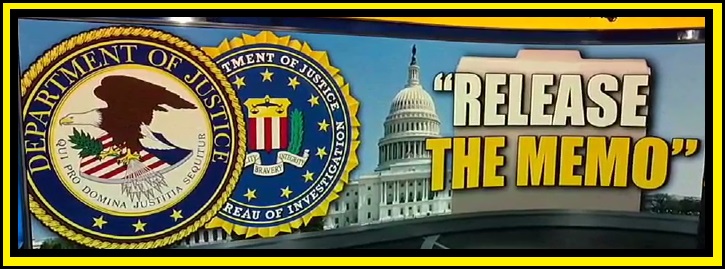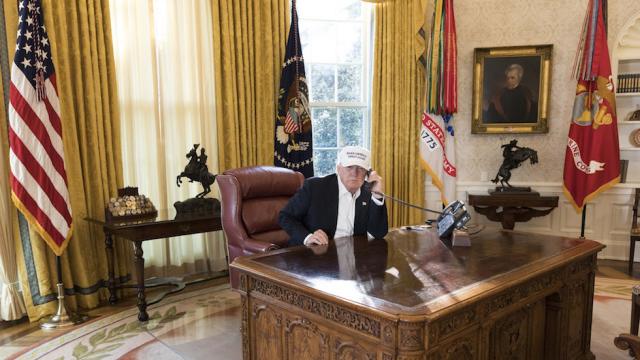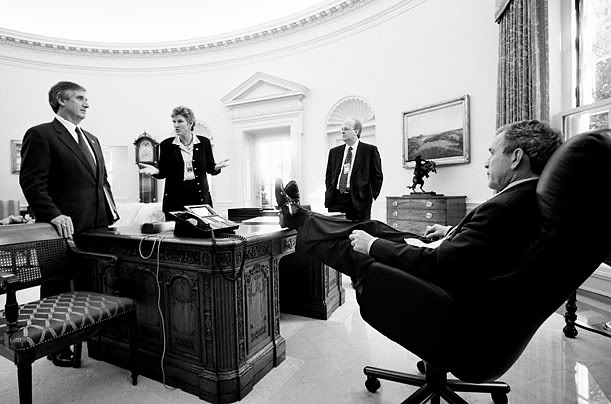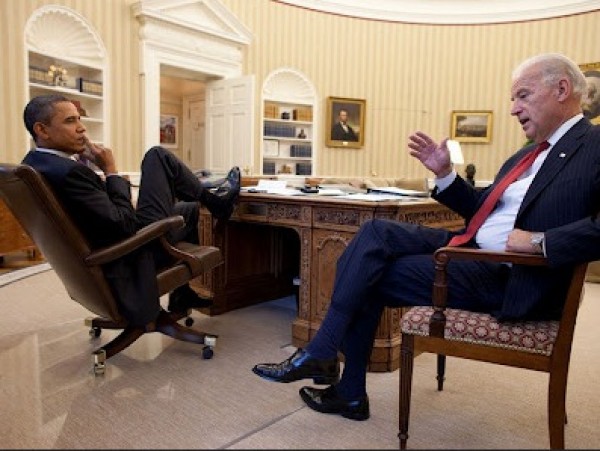The Senate agreed to a short-term spending bill today, so the shutdown is over, for now, and the can is kicked down the road to February 8.
I’m reading at Vox that today’s bill included six years of funding for the Children’s Health Insurance Program, so if this bill is approved by the House at least one thing will be off the table for awhile. If it doesn’t go through, 1.7 million children in 20 states and the District of Columbia would lose access to healthcare in the next few weeks, and another 2 million children will lose access in just a bit more time. Ten states plus DC would have to shut down their programs in a couple of weeks. It’s being cut pretty close.
However, the bigger concern right now is DACA. I’m seeing lefties on social media absolutely slam Chuck Schumer for caving on DACA. Whether it’s really a cave or just a semi-cave depends on whom you ask.
Dylan Scott at Vox:
In agreeing to break the impasse after a three-day shutdown, Democrats are banking that they have successfully pigeonholed Senate Republican leader Mitch McConnell into opening an immigration debate in the coming weeks and that an overwhelmingly bipartisan vote for an immigration bill would put pressure on the House and White House. They are already warning that if their demands aren’t met, another government shutdown could happen on February 8, when the three-week short-term funding bill runs out. And next time they won’t have Republicans dangling a six-year funding extension for the Children’s Health Insurance Program over their heads.
Brian Beutler at Crooked:
Late Friday night, Democrats drew the line here: our votes will not help fund a government that will deport immigrants brought to the country by their parents as children. Republicans rejected that demand, and the government shut down.
On Monday morning, less than three full days later, they redrew the line at a less-than-ironclad promise from Senate Majority Leader Mitch McConnell to consider legislation in the Senate that would presumably protect at least some of the Dreamer population.
This is unsatisfying in a number of ways, most obviously because the government shutdown will end without any guarantee that Congress, as opposed to just the Senate, will pass, and Donald Trump will sign, legislation that creates permanent protections for Dreamers. To the contrary, the structure of the arrangement almost guarantees that we will reach the next government spending deadline no closer than we are today to resolving the problem Trump created when he terminated the deferred action program for childhood arrivals in September.
There’s no guarantee what Trump might do, no matter what Congress does. He’s already been offered funding for his wall if the Dreamers can be protected, and he shot that down. And don’t forget, Trump created this problem by ending the DACA program, which he could reinstate with a signature. Brian Beutler continues,
Together, the Republican leaders of the House and Senate could take matters into their own hands. It is their cynicism, indifference, and fear, as much as Trump’s incompetence, that leaves Dreamers confronting the imminence of their expulsions.
You know I’m not a big fan of Chuck, but I think he was in a lose/lose situation here. If he’d passed up CHIP funding to hold out for DACA, he’d have been skewered for that, especially if DACA falls through anyway.
Note that a lot of activists were upset with Schumer last week because he offered to fund the wall in exchange for reinstating DACA. Philip Bump wrote at WaPo last week:
When the New York Times first reported it, it seemed unlikely. Senate Minority Leader Charles E. Schumer (D-N.Y.) offered President Trump funding for his wall in exchange for protecting immigrants who entered the country illegally as children? The most powerful Democrat in the Senate was willing to support one of his party’s most-hated proposals, just like that? The Times wrote simply that Schumer “discussed the possibility of fully funding the president’s wall on the southern border with Mexico†— which leaves some wiggle room.
On the floor of the Senate on Saturday, though, Schumer explained that it was almost exactly that: A deal on those covered under the Deferred Action for Childhood Arrivals (DACA) program that would also potentially fund the wall.
That it was. Schumer offered to give Trump something that Schumer’s own base would hate; in return, Republicans would agree to something that their base is fine with.
Yep, that’s what Bump said.
… the DACA program — which allows those who immigrated illegally as children to remain and work in the United States — is broadly popular: 84 percent of Americans think it should be preserved, including 72 percent of Republicans.
 If so, why is it so hard to get a DACA bill through Congress? Two reasons: Trump doesn’t like it, and congressional Republicans are nuttier than a Planters factory.
If so, why is it so hard to get a DACA bill through Congress? Two reasons: Trump doesn’t like it, and congressional Republicans are nuttier than a Planters factory.
Brian Beutler is right that today’s agreement is unsatisfactory, but there’s no guarantee that continuing the shutdown would have created anything satisfactory, either. The zeitgeist I’m seeing on leftie social media today is that Chuck should have let the CHIPS kids die already and focused on DACA, but you know that soon enough people would have noticed the dying children and blamed that on Chuck, too.
Seems to me that if Beutler’s numbers are accurate, it would be in Republicans’ own interest to work with the Democrats on a DACA bill. If Trump vetoes it, that’s on him. But the Republican Party seems to have inflicted on itself the same curse it inflicted on Republican voters — for some reason, they are compelled to vote against their own interests.
It’s also the case that the DACA deadline is not as clear cut as is being made out on social media. Eric Columbus writes in Politico,
So is DACA already dead? Not so fast. On January 9, a federal judge in San Francisco ruled that Trump’s DACA rescission was illegal because it rested on a “flawed legal premise that the agency lacked authority to implement DACA.†The court ordered DHS to resume processing all DACA renewal applications. …
…Most expected that the administration would immediately ask a higher court to put the ruling on hold — in legal terms, to seek a “stay†— pending an appeal.
Instead, on January 13, DHS announced that it would abide by the injunction and reopen the DACA renewal process. Anyone whose DACA permit has expired, or is about to expire, may reapply for a two-year extension. …
…California Attorney General Xavier Becerra, whose state is a plaintiff in the DACA litigation, said that DACA’s temporary reprieve diminishes the need for Democrats to make other immigration-related concessions — possibly including funding for Trump’s wall along the Mexican border, limits on family-based migration, and speeding up the deportation process — in order to save it. Most DACA advocates, however, are loath to let up the pressure for a DACA fix, given the difficulty of finding another suitable must-pass legislative vehicle to force Republicans to the negotiating table.
It’s true that on January 18 the Justice Department asked the Supreme Court to review the federal court decision, rather than go through the court of appeals first, but it’s unlikely the SCOTUS will take the case. However, the Justice Department didn’t ask for a stay of the injunction, which undermines its own case that DACA is a five-alarm fire that must be put out ASAP. Eric Columbus continues,
Either way, March 5 is highly unlikely to mean anything at all. Any end to the injunction—whether at the hands of the Supreme Court or the 9th Circuit—is almost certainly months away at the earliest. And if the injunction is lifted, the administration will need to decide whether to end DACA immediately or develop another gradual wind-down process like the one it announced last fall.
On the other hand, children were in danger of losing health care beginning in a couple of weeks. I think taking the CHIPS offer is a deal I might have taken, too.
I have no feel for whether a DACA bill could pass Congress (although why not, if Philip Bump is right and Republicans like DACA?). I don’t trust that the Republicans will magically start bargaining in good faith. It’s entirely possible that Trump would veto any bill with DACA in it. It’s said he’s being manipulated by the hard liners on his staff, in particular Stephen Miller and John Kelly. Miller is an out-and-out white supremacist neo-Nazi asshole, in spite of being the great grandson of immigrant Polish Jews. CNBC published a story Saturday saying that John Kelly was behind killing a deal to fund the government
Here’s a list of how every Senator voted, if you’re interested.









